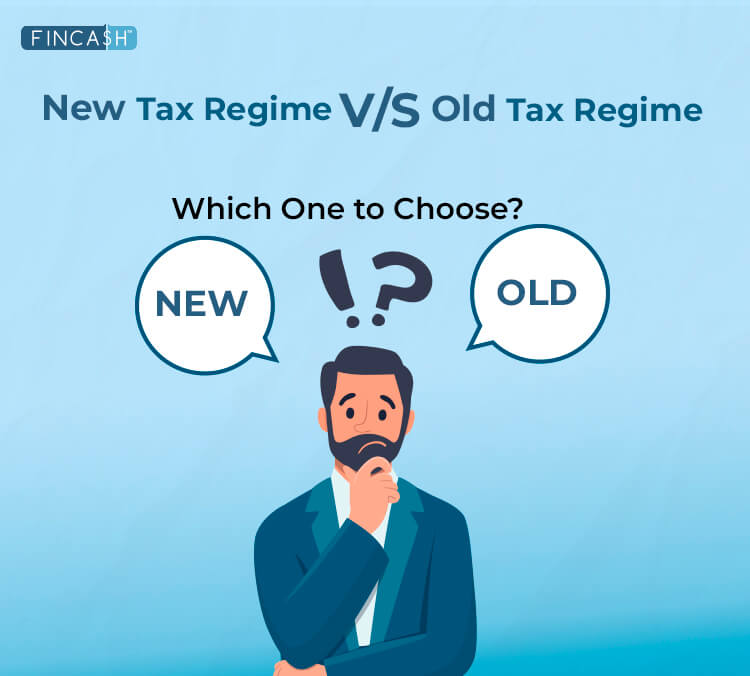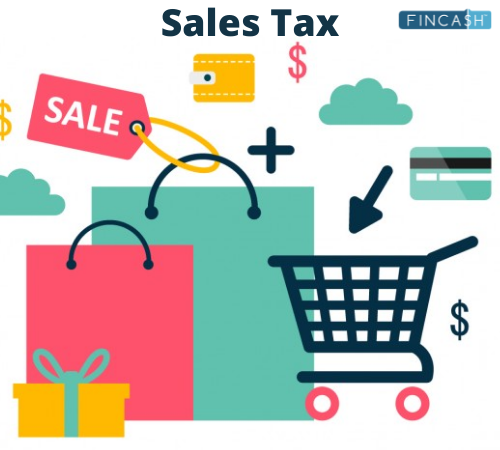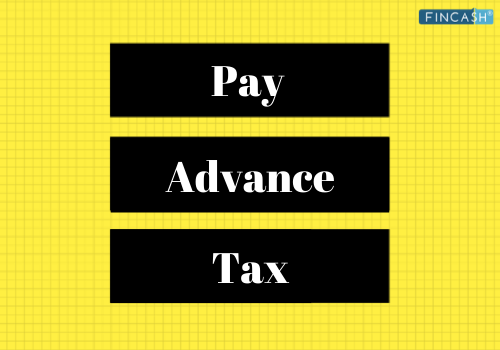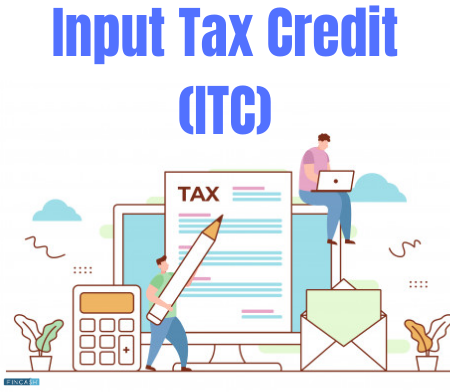
Table of Contents
Tax Fever - Don't Let Tax Season Bring You Down!
Most of you have, at least once, been through the experience of having a significant amount cut as tax from your Earnings. This can be either due to not Investing in tax-saving options or investing at the last moment.
Despite this experience, Investing Early is not the norm – even though everyone is eager to avoid paying too much in Taxes, being prudent with one’s money and making timely investments is not usually a priority.
So, what happens when you miss planning your taxes in advance?
- You end up paying a lump sum at one go, instead of spacing out the investments
- You are unable to create a worthy Investment plan, which might help generate wealth for long-term as well as save tax
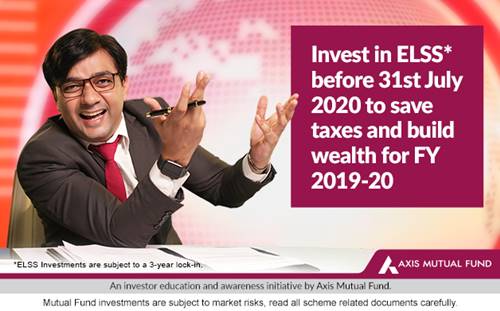
Why Tax Fever?
When it comes to tax saving, people have the habit of procrastinating, which is much like seasonal flu. With a delay in Tax Planning, you have higher chances of getting bitten by the tax fever bug. It’s like a disease you’ve to deal with reactively rather than proactively.
So, why not prevent it? Why not plan in advance to mitigate the effects of tax fever?
To penetrate the importance of tax planning in advance, 'Tax Fever', a recently released Ad campaign, nudges investors towards planning their tax savings early in the financial year. The campaign takes a humorous approach to ‘Tax Fever’ in India, which shows how people wait until the last moment to save their taxes.
The campaign features an emphatic news anchor yelling at a young guy for having enough time to play mobile games, but got no time to plan taxes. He continues to yell and makes the boy understand how he is failing to build wealth by paying taxes last moment.
In short, it is based on asking people why they go through the same cycle of procrastination-panic-last-minute tax investments every year and urging them to invest in ELSS as soon as they can to mitigate the effects of Tax Fever as much as possible.
Note: Hurry-up! You still have an opportunity to save tax and create wealth. You can plan your taxes before 31st July, 2020 and avail tax benefits for Financial Year 2019-20.
Talk to our investment specialist
Equity Linked Savings Scheme (ELSS)
An Equity Linked Savings Scheme (ELSS) is considered as the most popular tax-saving investment choices. It is a type of Mutual Fund that combines the dual benefit of tax saving and wealth creation. ELSS is a fund that predominantly invests in equity and equity-linked instruments to provide Market-linked returns.
It is the only untainted equity investment that offers deductions under Section 80C of the IT Act. You can invest up to Rs. 1.5 lakh per Fiscal Year and claim a tax Deduction of Rs. 46,800. ELSS comes with the lowest lock-in period of 3 years.
ELSS Vs Other 80C Investment Options
ELSS can play a significant role in your investment. Being an equity-linked scheme, it has the potential to offer higher returns in the long term. Apart from ELSS, no other tax saving options under Section 80C offers such high exposure in equity. Furthermore, ELSS has the shortest lock-in than any other Section 80C options.
Unlike other tax saving options which involve paperwork, ELSS online investment is quick and hassle-free. After investing, you can also easily track your Portfolio online. The table below shows a quick comparison between ELSS and other 80C tax saving options-.
| Sec 80C Tax Saving Options | Returns | Safety | liquidity |
|---|---|---|---|
| Public Provident Fund (PPF) | Market-linked (7.1% for current year) | High | Lock-in till 5 years |
| Senior Citizen Saving Scheme (SCSS) | 7.4% | High | Lock-in for 5 years, interest paid quarterly |
| National Pension Scheme (NPS) | Market-linked | Moderate | No withdrawal before retirement |
| ELSS | Market-linked | Moderate | Lock-in for 3 years |
Benefits of Investing in ELSS
Long-term returns
Since ELSS is an equity scheme, it has the potential to deliver good returns in the long run. As your Capital is locked for three years, there is sufficient time to earn higher returns. Furthermore, ELSS plan is diversified across major Equity Funds, which enables capital appreciation. They have the potential to beat other investment over a long period. Therefore, the long-term returns in ELSS are higher when compared to PPF, NSC and other fixed-Income options.
Lowest lock-in period
ELSS has a very modest lock-in period of three years, whereas, other tax options come with a minimum of five-year lock-in. This brings discipline over investing and enables a good habit to stay invested for a longer duration.
Professionally managed
The investor's money is in safe hands as the investment made in ELSS scheme is professionally managed by fund managers who have knowledge about the functioning of Capital Markets. Fund managers adopt and personalize their Buy and Hold strategies in order to maximize returns. So, even if you are a newbie in the investing world or lack time to track folio on a daily Basis, you can be worry-free and capitalize the returns from equity markets.
Best Axis ELSS Mutual Funds 2025
Fund NAV Net Assets (Cr) 3 MO (%) 6 MO (%) 1 YR (%) 3 YR (%) 5 YR (%) 2023 (%) Axis Long Term Equity Fund Growth ₹91.9455
↑ 1.18 ₹32,174 0.6 -7.4 6.6 9.4 18.1 17.4 Note: Returns up to 1 year are on absolute basis & more than 1 year are on CAGR basis. as on 17 Apr 25
To generate income and long-term capital appreciation from a diversified portfolio of predominantly equity and equity-related securities. However, there can be no assurance that the investment objective of the Scheme will be achieved. Axis Long Term Equity Fund is a Equity - ELSS fund was launched on 29 Dec 09. It is a fund with Moderately High risk and has given a Below is the key information for Axis Long Term Equity Fund Returns up to 1 year are on 1. Axis Long Term Equity Fund
CAGR/Annualized return of 15.5% since its launch. Ranked 20 in ELSS category. Return for 2024 was 17.4% , 2023 was 22% and 2022 was -12% . Axis Long Term Equity Fund
Growth Launch Date 29 Dec 09 NAV (17 Apr 25) ₹91.9455 ↑ 1.18 (1.30 %) Net Assets (Cr) ₹32,174 on 28 Feb 25 Category Equity - ELSS AMC Axis Asset Management Company Limited Rating ☆☆☆ Risk Moderately High Expense Ratio 1.55 Sharpe Ratio -0.07 Information Ratio -0.77 Alpha Ratio 4.41 Min Investment 500 Min SIP Investment 500 Exit Load NIL Sub Cat. ELSS Growth of 10,000 investment over the years.
Date Value 31 Mar 20 ₹10,000 31 Mar 21 ₹15,763 31 Mar 22 ₹17,787 31 Mar 23 ₹15,784 31 Mar 24 ₹21,969 31 Mar 25 ₹23,368 Returns for Axis Long Term Equity Fund
absolute basis & more than 1 year are on CAGR (Compound Annual Growth Rate) basis. as on 17 Apr 25 Duration Returns 1 Month 6.3% 3 Month 0.6% 6 Month -7.4% 1 Year 6.6% 3 Year 9.4% 5 Year 18.1% 10 Year 15 Year Since launch 15.5% Historical performance (Yearly) on absolute basis
Year Returns 2023 17.4% 2022 22% 2021 -12% 2020 24.5% 2019 20.5% 2018 14.8% 2017 2.7% 2016 37.4% 2015 -0.7% 2014 6.7% Fund Manager information for Axis Long Term Equity Fund
Name Since Tenure Shreyash Devalkar 4 Aug 23 1.58 Yr. Ashish Naik 3 Aug 23 1.58 Yr. Data below for Axis Long Term Equity Fund as on 28 Feb 25
Equity Sector Allocation
Sector Value Financial Services 29.59% Consumer Cyclical 13.72% Health Care 10.27% Industrials 8.84% Technology 8.79% Basic Materials 7.4% Communication Services 5.57% Consumer Defensive 5.16% Utility 3.2% Real Estate 1.22% Energy 1.18% Asset Allocation
Asset Class Value Cash 5.07% Equity 94.93% Top Securities Holdings / Portfolio
Name Holding Value Quantity HDFC Bank Ltd (Financial Services)
Equity, Since 31 Jan 10 | HDFCBANK8% ₹2,542 Cr 14,670,802 ICICI Bank Ltd (Financial Services)
Equity, Since 31 Dec 23 | ICICIBANK5% ₹1,599 Cr 13,282,382 Bajaj Finance Ltd (Financial Services)
Equity, Since 30 Sep 16 | 5000345% ₹1,551 Cr 1,817,920
↓ -172,155 Bharti Airtel Ltd (Communication Services)
Equity, Since 31 Oct 23 | BHARTIARTL4% ₹1,380 Cr 8,787,501 Tata Consultancy Services Ltd (Technology)
Equity, Since 30 Apr 17 | TCS4% ₹1,139 Cr 3,269,581 Infosys Ltd (Technology)
Equity, Since 31 May 24 | INFY3% ₹1,042 Cr 6,174,136
↑ 286,627 Torrent Power Ltd (Utilities)
Equity, Since 30 Jun 13 | 5327793% ₹1,029 Cr 8,148,217
↓ -517,778 Mahindra & Mahindra Ltd (Consumer Cyclical)
Equity, Since 30 Apr 22 | M&M3% ₹831 Cr 3,214,236 Divi's Laboratories Ltd (Healthcare)
Equity, Since 30 Nov 17 | DIVISLAB3% ₹808 Cr 1,474,177 Zomato Ltd (Consumer Cyclical)
Equity, Since 31 Jul 23 | 5433202% ₹771 Cr 34,692,799
How to Invest in ELSS – SIP or Lump Sum?
Systematic Investment Plan (SIP) or Lump sum? This is one question that revolves in the mind of the investors. Both modes have unique advantages; the end decision is based on your personal financial goal.
For instance, if you wish to invest Rs. 1.5 lakh in ELSS, you can either invest all at once (lump-sum) or do a SIP every month to keep your investments in a disciplined manner.
Benefits of Systematic Investment Plan
As you invest gradually via a SIP, your investments are spread over time. It lowers the market risk, as only a small part of investment faces market Volatility.
SIP allows investment with an amount as low as Rs. 500 monthly. A salaried person or new investor can feel more comfortable opting SIP as they are only able to invest small, but fixed sum on a regular basis for long-term. It also helps in disciplined investing.
One of the major benefits SIP offers is the Rupee Cost Averaging. When the market is low, the fund manager purchases more units to reduce the per-unit cost of investment. These units are later sold when the market reaches its peak, which ensures higher returns.
Benefits of Lump Sum
A lump-sum mode is a good option for yearly revenues. You may consider investing all at once as there won't be any Financial Distress of investing monthly.
Investing lump sum at the start of the financial year allows your money to earn higher returns because of the long-term goal.
Conclusion
An early start gives you enough time to evaluate all the tax-saving options. There is enough time to plan your tax savings in a staggered manner. On the other hand, last-minute preparations can turn out to be catastrophic, resulting in improper planning.
Say good-bye to last-minute rush! Plan your taxes in advance with ease.
All efforts have been made to ensure the information provided here is accurate. However, no guarantees are made regarding correctness of data. Please verify with scheme information document before making any investment.
